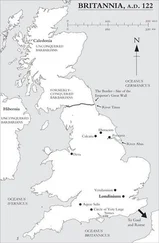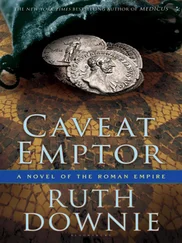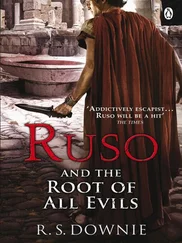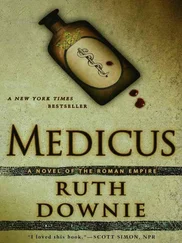Ruth Downie - Tabula Rasa
Здесь есть возможность читать онлайн «Ruth Downie - Tabula Rasa» весь текст электронной книги совершенно бесплатно (целиком полную версию без сокращений). В некоторых случаях можно слушать аудио, скачать через торрент в формате fb2 и присутствует краткое содержание. Год выпуска: 2014, ISBN: 2014, Издательство: Bloomsbury USA, Жанр: Исторический детектив, на английском языке. Описание произведения, (предисловие) а так же отзывы посетителей доступны на портале библиотеки ЛибКат.
- Название:Tabula Rasa
- Автор:
- Издательство:Bloomsbury USA
- Жанр:
- Год:2014
- ISBN:9781620403235
- Рейтинг книги:5 / 5. Голосов: 1
-
Избранное:Добавить в избранное
- Отзывы:
-
Ваша оценка:
- 100
- 1
- 2
- 3
- 4
- 5
Tabula Rasa: краткое содержание, описание и аннотация
Предлагаем к чтению аннотацию, описание, краткое содержание или предисловие (зависит от того, что написал сам автор книги «Tabula Rasa»). Если вы не нашли необходимую информацию о книге — напишите в комментариях, мы постараемся отыскать её.
Tabula Rasa — читать онлайн бесплатно полную книгу (весь текст) целиком
Ниже представлен текст книги, разбитый по страницам. Система сохранения места последней прочитанной страницы, позволяет с удобством читать онлайн бесплатно книгу «Tabula Rasa», без необходимости каждый раз заново искать на чём Вы остановились. Поставьте закладку, и сможете в любой момент перейти на страницу, на которой закончили чтение.
Интервал:
Закладка:
He had spoken briefly with Senecio and told him that there was no news, which was at least better than bad news, but not by much. It was surprising how easily everyone seemed to have grown used to the sight of the old man sitting there. He had noticed the guard twitching the toes of one foot at regular intervals, as if he were singing a song in his head to relieve the boredom. Beside him, Senecio might as well have been a broken-down vehicle awaiting repair or removal.
Ruso had filled a whole morning with activities that were supposed to help rescue Branan, and none of them seemed to have achieved anything. Valens was right: This one-at-a-time thing was hopeless. He straightened his belt and his tunic, checked his bootlaces, ran both hands through his hair, and went to see if Accius had any better ideas. Or any ideas at all.
Inside the HQ, Accius was gathering up his cloak. With him was a man whom Ruso had seen before but never spoken to. He had a thick neck and cropped iron-gray hair. There was something vaguely bovine about his slow, deliberate movements and the way he breathed heavily through his nose. He looked like a man not easily distracted from his task. With a neck like that, he was probably also a man who snored, although Ruso never knew how men like that managed to sleep at all. Were their dreams haunted by the screams of their victims?
Accius caught sight of him. “Any news, Doctor?”
“No, sir.”
“Go and find out how the natives are getting on. Come and find me in a couple of hours and we’ll see where we’ve got to.” Accius turned to the questioner. “Do you know where you’re going?”
“Yes, sir.”
“Lead the way, then.” The tribune’s expression was set in a manner that suggested he was about to face an unpleasant task.
Ruso asked, “Is Optio Daminius in the clear now, sir?”
Accius looked him in the eye. “No. Thanks to you, we now know the optio is lying about where he went that afternoon. Go away, Ruso.”
They made an odd couple as they turned immediately right outside the HQ building: the heavy questioner and the upright aristocrat who might one day be a highly respectable senator charged with approving legislation. Ruso, watching from beneath the covered walkway of the barrack block, knew he should stay out of this. He should let whatever was going to happen happen. He had no authority to question it, and besides, Accius had probably wrestled with his own conscience anyway-not about the pain, but about the illegality.
The men turned right again almost immediately before the granary. Ruso reached the corner of the granary just in time to see them turn in at the entrance to the workshops. He knew exactly why he had been sent away. Accius was trying to make sure none of his officers could be accused of being complicit in the application of torture to a serving soldier.
It was a peculiar form of decency. Sacrificing one’s principles for the sake of the child. If only Ruso could convince himself that the result would be worth it.
A voice in his head said, So, can you think of anything else to try?
He couldn’t. Daminius had lied. He was a responsible and ambitious young officer, he knew how important this was, and he had lied.
A dozen or so men in rough working tunics came out of the maintenance yard. They formed up and marched off in the direction of the barracks. So the workshops had been emptied of their regular occupants. Ruso could smell the furnace.
Ruso flattened himself against the wall of the wheelwright’s store, feeling the waft of warm air on his skin. In the gloom of the smithy, the glow of the burning charcoal picked out dark stripes and curves against the far wall. He understood now why the questioner seemed to have brought no equipment. Hanging there were all the implements anyone could possibly need to loosen a man’s tongue. He felt his own tunic prickle with sweat.
A confused shuffle of footsteps was coming toward him down the street. He stepped back into the wheelwright’s shop until the footsteps had passed. When he looked again, a barefoot and gagged figure was standing in the yard, surrounded by four men. Ruso did not recognize the guards. They were certainly not from the Twentieth. Accius was not going to risk a mutiny by putting Daminius in the custody of his own messmates.
The Tribune stepped forward and spoke to the prisoner. “Optio Daminius, none of us want this, but a child is missing and I will do whatever is necessary to find him. Do you understand?”
Daminius nodded.
“Do you have a fresh account of your movements two days ago?”
Daminius shook his head.
Accius stepped back. There was a moment’s silence, then he said, “Carry on.”
The questioner spoke to the guards. One of them entered the workshop, squinted up into the rafters, and then slung a rope up over something and caught the other end. The others stripped a struggling Daminius of his clothes and prodded him forward. Meanwhile someone pumped the bellows and a roar of white flame shot up from the charcoal.
Ruso caught a glimpse of something hanging beside the identity tag around Daminius’s neck. My lucky charm, sir. Never fails. If you’re in trouble, just shout.
Ruso turned and ran.
Chapter 51
There must be someone in: Why was nobody answering the door? Ruso pulled out his knife, used the hilt to rap on the wood, and yelled, “Fabius!”
He must calm down. He must steady his breathing and try to think logically. He was not the first medic to be put in this position. He had more than once had to tidy victims up after torture, but he had never been present at the time. Several of his unluckier colleagues had been ordered to keep prisoners conscious during the process. Afterward, they had not wanted to talk about it and he had not wanted to ask.
He saw now how sheltered he had been. By Fortune, and by a law to which he’d barely given a thought. Regulations stated that a soldier, being neither a slave, an enemy prisoner, nor a barbarian, was not to be condemned to the mines or to torture.
But . . . what if Daminius was guilty? What if he was a convincing liar, and it was Daminius whom Candidus had gone to meet for a drink? What if Candidus had cheated at dice, and there had been a fight, and Candidus had ended up dead and hidden in the wall, and then Daminius had found out there was a witness, and wanted to silence him, and . . .
Ruso shook his head violently, dislodging the elaborate fantasy that had sprung from a man’s simple refusal to reveal where he was on one particular afternoon.
He banged on the door again. “Fabius!”
A voice over his shoulder said, “Everything all right, sir?”
It was Fabius’s clerk. “Fine,” Ruso assured him. “I just need to talk to the centurion.”
The man said, “Very good, sir,” and carried on past.
From somewhere inside the house he heard the approach of footsteps. A female voice said, “The centurion is unwell, sir. Please come back later.”
“I need to see him now. Open the door.”
“Sir, I can’t-”
“He knows what this is about. Tell him if he doesn’t let me in, I’ll stand outside his room and yell through the window.”
“Sir, please-”
More footsteps. A male voice. “It’s all right, girl. Ruso, have they found the child?”
“No.”
“Then I’ll deal with whatever it is tomorrow. Go away.”
“I meant it. I’ll shout outside your window.”
The locks rattled. Finally the door was wrenched open, juddering with the force needed to get the damp wood free. Fabius appeared, with the face of the little kitchen girl pale behind him. Fabius dismissed her, and she scuttled away down the corridor.
Ruso shouldered his way in, closed the door, and leaned back against it.
Читать дальшеИнтервал:
Закладка:
Похожие книги на «Tabula Rasa»
Представляем Вашему вниманию похожие книги на «Tabula Rasa» списком для выбора. Мы отобрали схожую по названию и смыслу литературу в надежде предоставить читателям больше вариантов отыскать новые, интересные, ещё непрочитанные произведения.
Обсуждение, отзывы о книге «Tabula Rasa» и просто собственные мнения читателей. Оставьте ваши комментарии, напишите, что Вы думаете о произведении, его смысле или главных героях. Укажите что конкретно понравилось, а что нет, и почему Вы так считаете.









![Антон Архангельский - Tabula Rasa - Исходная точка [калибрятина]](/books/392380/anton-arhangelskij-tabula-rasa-ishodnaya-tochka-k-thumb.webp)


